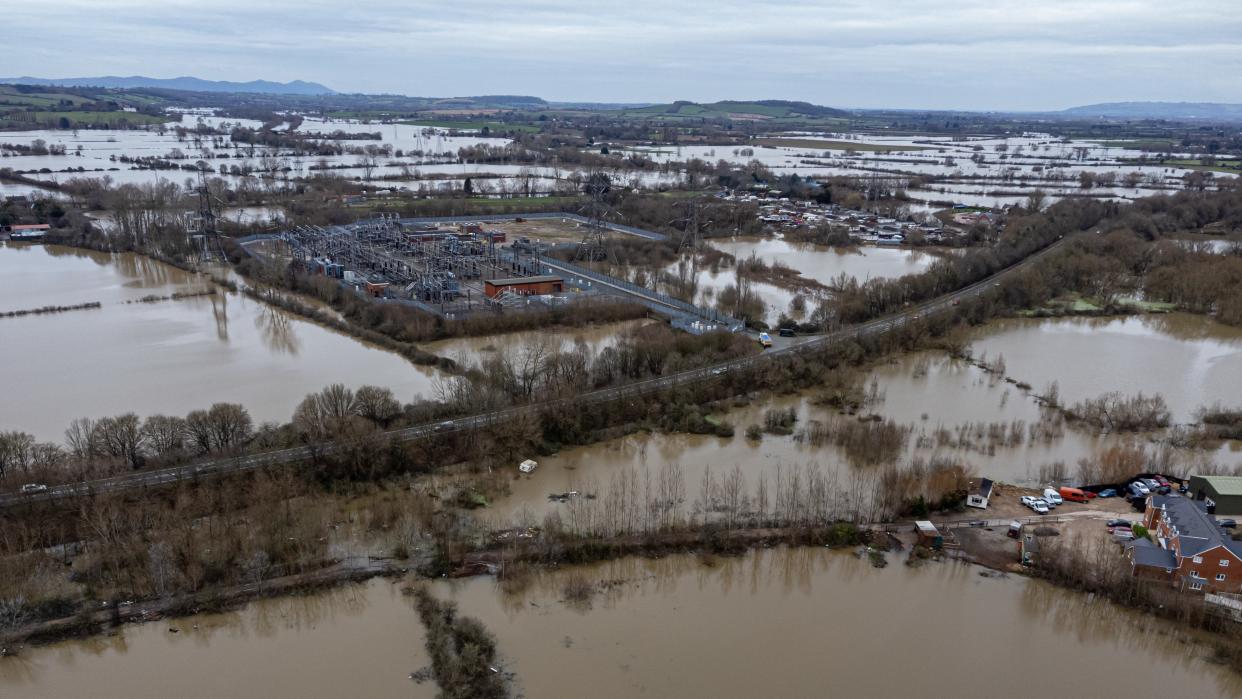Farming leader urges parties to back food production as sector on ‘knife-edge’

Agriculture is on a “knife-edge”, a farming leader has said as he called for political parties to set out policies to support farmers to invest in food production.
National Farmers’ Union (NFU) president Tom Bradshaw called for a significant increase in the UK agricultural budget to £5.5 billion a year as the “correct level” of investment for meeting environmental targets and supporting sustainable food production.
Mr Bradshaw also called for measures to prevent imports of food that are not produced to standards that are legally required in the UK, and reform of planning rules to help farming businesses invest in infrastructure such as glasshouses.
As polling suggests Labour has pulled ahead of the Tories in some of the most rural constituencies, Mr Bradshaw said: “The rural vote is up for grabs.”
The party manifestos would be the moment of truth to see if there were policies that would support farmers and growers, he suggested.
While both parties have spoken about how food security is an issue of national security, he warned it was just “warm words” that were meaningless without policies to deliver it.
Mr Bradshaw, an arable farmer from near Colchester, Essex, said farmers had endured an extraordinary couple of years, with the war in Ukraine sparking a huge inflationary period.
And he said: “When you couple that with the challenges of climate change, I think what members are seeing on the ground is some of the most exceptional conditions that we’ve seen, probably for a generation.
“We’ve had nine months of exceptionally wet weather which started last harvest.”
He warned that confidence among farmers had fallen, and the NFU wanted to see policies that gave farm businesses the confidence to invest in food production and environmental action.
“I think we are at an absolutely pivotal time,” he told the PA news agency.
“It’s quite exciting because if there is a party that really demonstrates that they are willing to invest in agriculture and the food supply chain, and rebuild that confidence, then we have a crucial role to play in delivering for economic growth, particularly in our rural communities, but also in the role we can play for climate change.
“It’s one of those times where I do feel things are on a knife-edge, but if we do get the right support, then I think we’ve got all to play for,” he said.
He called for a long-term commitment to the agricultural budget, which he described as “more of an environmental budget” as subsidies have shifted to an “environmental land management” (Elm) system of payments for delivering public goods such as healthy soil, clean water and habitats.
“The correct level of investment will enable the delivery of the legislated environmental targets while also supporting sustainable food production,” he said.
“If we only focus on the legislated environmental targets, then I think it will leave our food supply chains very vulnerable,” he warned, as he called for the increase of just over £2 billion a year from the level set for the last parliament.
And he warned against allowing food production to become the “poor relation” to environmental goals.
Mr Bradshaw pointed to both Environment Secretary Stephen Barclay and shadow environment secretary Steve Reed reiterating that food security was national security.
“That’s meaningless if policy doesn’t then flow from it, which delivers the outcomes that pull it all together,” he said.
“And so I think that we will be trying to make sure there is more of a focus on food, because if not, it’s nothing more than warm words and that is not going to keep people fed.”
Mr Bradshaw, who was elected as NFU president at the organisation’s annual meeting in February, said: “I’ve said since I’ve been elected as president that the rural vote is up for grabs.
“I think that was very clear in our conference back in February. I believe that’s still true today.”
With water pollution already an issue in the election and farming a key contributor to poor water quality in rivers, lakes and coastal waters, Mr Bradshaw also said: “I think it’s really important to put up our hands and say we need to do better, we can do better and we want to do better.”
He said: “None of us set out to cause water pollution.” And he warned there was a need for huge investment in infrastructure such as slurry storage to reduce environmental risks.
“We need to invest in the facilities, the infrastructure that’s going to mitigate our environmental risk, but underwrite food security for the future.
“And I think any government that can embrace that ability to deliver the infrastructure and the latest technology and techniques of producing our food for the future is going to deliver food security for the public.”


